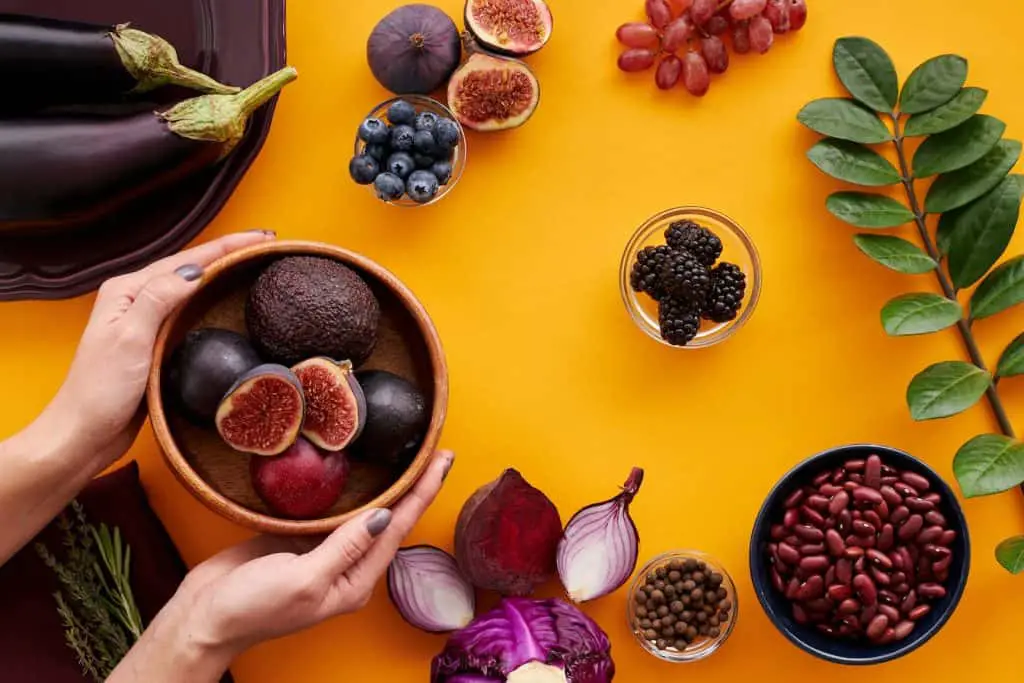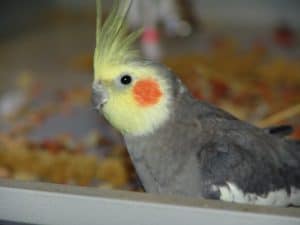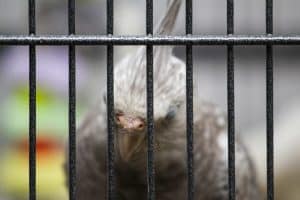Can cockatiels eat beetroot? This colorful vegetable is safe and offers benefits to your bird’s diet, providing essential nutrients when included in a balanced feeding guide for cockatiels.
Cockatiels are charming and vibrant pet birds, known for their sociable nature and dazzling colors. To ensure these delightful creatures live a long life, it’s essential to provide them with a nutritious and well-balanced diet. One question that often arises among cockatiel owners is, can cockatiels eat beetroot? This blog post aims to answer that question and offer guidance on incorporating this root vegetable into your pet’s diet.
Nutritional Benefits of Beetroot
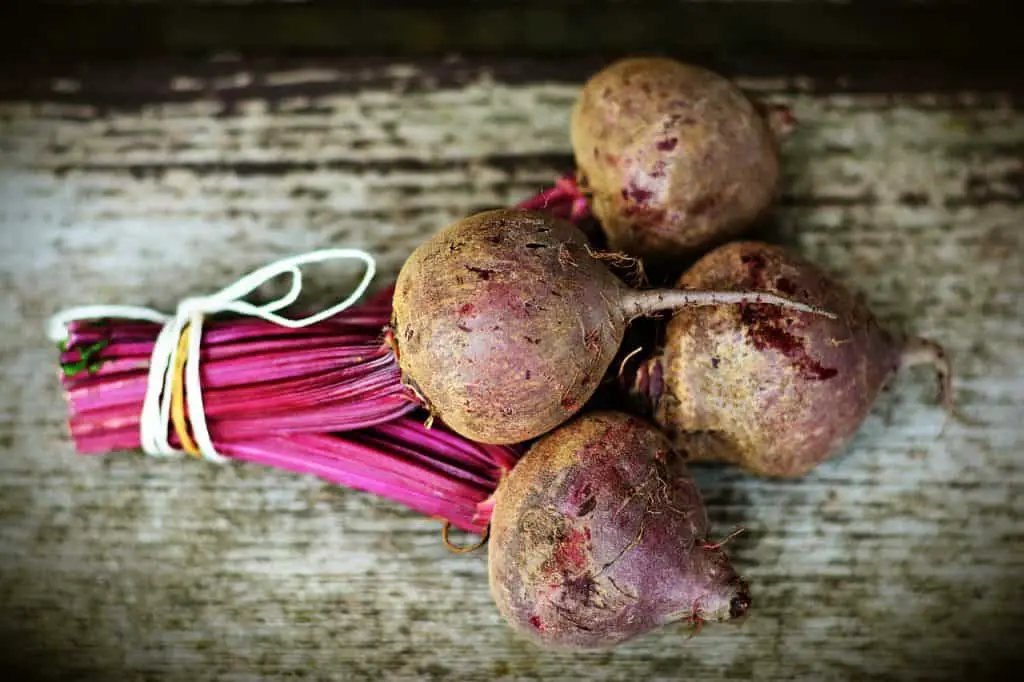
Beetroot is a nutrient-rich vegetable that provides many essential vitamins and minerals for both humans and birds alike. Some of the key nutrients found in beetroots include vitamin C, potassium, fiber, and various antioxidants. These nutrients can bring a range of health advantages for cockatiels, such as supporting a strong immune system, aiding digestion, and promoting good heart health.
Potential Concerns with Feeding Cockatiels Beetroot
While beets can be a healthy addition to your pet bird’s diet, there are some potential concerns that cockatiel owners should be aware of before feeding beets to their pets.
High Sugar Content
Beetroot is known for its naturally sweet taste, which is a result of its high sugar content. Excessive sugar intake can be detrimental to a cockatiel’s health, potentially causing obesity and other health issues. To mitigate this risk, it’s essential to serve beets to your cockatiel in small portions and alongside other vegetables such as carrots, broccoli, and leafy greens. This will ensure that the sugar content in your bird’s diet stays at a safe and healthy level.
Pesticides
Like many other vegetables, conventionally-grown beets can contain traces of pesticides, which could be potentially toxic to your cockatiel if ingested. To minimize the risk of exposing your pet to these harmful substances, opt for organic beetroots whenever possible. Washing the beets thoroughly before serving them to your bird is also essential to remove any residual pesticide residues.
Preparing Beetroots for Cockatiels
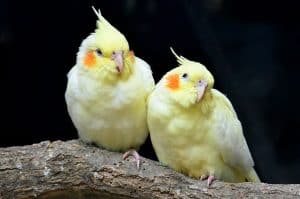
Cooking Methods
Raw or cooked beets can both be safely consumed by cockatiels, but the vegetable’s texture and taste may vary depending on the preparation method. Some cockatiels might prefer the crunch of raw beets, while others may find cooked beets more palatable. Experiment with both forms to determine which one your bird prefers. If you decide to cook the beets, boiling them without any added salt or seasoning is the best option.
Serving Suggestions
When including beetroot in your cockatiel’s diet, proper portioning and presentation are crucial. Cut the beets into small portions that can be easily consumed by your pet. You can also consider mixing beetroot with other vegetables such as sweet potatoes, beet greens, and pumpkin, or even grains like quinoa, to provide your bird with a diverse range of tastes and nutrient sources.
Monitoring Your Cockatiel’s Reaction to Beetroot
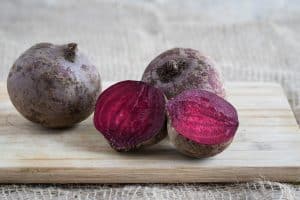
Individual Preferences
Each cockatiel has its unique taste preferences and dietary needs. While some birds might enjoy snacking on beetroot, others may not be so keen on incorporating this root vegetable into their regular diet. Introduce beetroot gradually to your bird’s diet and monitor their response to determine if they are receptive to this new food.
Potential Allergic Reactions or Health Concerns
In rare cases, cockatiels may be allergic or sensitive to certain food items such as beetroot. If your bird exhibits any adverse symptoms like lethargy, a change in feces, or difficulty breathing after consuming beetroot, remove the vegetable from its diet immediately and consult your veterinarian.
- PREMIUM FORAGING MIX of bell peppers, papayas, pineapples, flax seed and almonds
- HAND-PICKED INGREDIENTS inspired by ancestral feeding habits of Cockatiels
- NATURAL with vitamins and minerals
- NO ADDED FILLERS or artificial preservatives
- PREBIOTICS and PROBIOTICS for digestive health
- OMEGA 3s to support brain and heart health
- VETERINARIAN-RECOMMENDED BRAND with more than 150 years of experience caring for pet birds
Other Foods to Consider for a Well-Balanced Cockatiel Diet
In addition to beetroot, it’s essential to incorporate various other fruits, vegetables, and grains into your pet bird’s diet to ensure they receive all the necessary nutrients for optimal health. Some other healthy foods to consider include apples (without the seeds, as fruit seeds can sometimes be problematic), sunflower seeds, and mustards greens.
However, it’s also crucial to recognize that some human foods aren’t safe for cockatiel consumption, such as chocolate, avocado, dairy products (since birds cannot digest lactose), and anything high in salt or sugar content.
Additional Tips for Feeding Beetroot to Cockatiels
Balancing Beetroot with Other Nutritious Foods
Aside from incorporating beet greens, sweet potatoes, and other vegetables into your pet’s diet, consider combining beetroot with complementary foods like turnip greens, kale, and spinach to increase diversity and nutrition. Offer your bird a mix of cooked and raw vegetables to provide different textures and flavors, catering to their unique preferences. Remember, though, that vegetables should never be the sole component of your cockatiel’s diet – they should be part of a balanced mix that includes seeds, grains, and occasional treats such as nuts and dried fruits.
Offering Treats for Positive Reinforcement
Treats should make up a minimal percentage of your bird’s diet but can be used effectively for training and positive reinforcement. When your cockatiel accepts the beetroot successfully, reward them with a small treat after eating to encourage their continued consumption of this healthy food. Engaging in regular praise and positive reinforcement can help establish and maintain a strong bond between you and your feathered friend.
The Importance of Hydration for Cockatiels
Providing Fresh Water Daily
While discussing the different aspects of a cockatiel’s diet, we must not forget the importance of hydration. Cockatiels need access to fresh, clean drinking water at all times. Be sure to change their water daily to prevent the growth of bacteria and replace any contaminated water promptly. By ensuring your cockatiel has access to an adequate supply of water, you will help them maintain optimal health.
Recognizing the Signs of Dehydration
Dehydration can be particularly harmful to pet birds, so it’s crucial to recognize the signs of dehydration in your cockatiel. Some common indications of dehydration in cockatiels include lethargy, disorientation, sunken eyes, and a decrease in the regular intake of food. If you notice any of these signs, consult your veterinarian as soon as possible to avoid serious health complications.
The answer to Can Cockatiels Eat Beetroot is?
Can cockatiels eat beetroot? Yes, as long as it’s served in moderation and with proper precautions. Beetroots can provide a variety of essential vitamins and minerals that support a healthy and active lifestyle for your pet bird. By introducing beets and other nutritious food options into your bird’s diet, you’ll contribute to their overall well-being and help them live a long, happy life.
Remember to always consult with your veterinarian if you have any doubts about specific foods or dietary changes for your cockatiel. Ensuring your feathered friend stays happy and healthy is a responsibility every cockatiel owner should take seriously. Happy feeding!
- Can a Cockatiel be Constipated?
- Can a Cockatiel be kept outside?
- Can a Cockatiel Be Left Alone for a Weekend?
- Can a Cockatiel Be Potty Trained?
- Can a Cockatiel Eat Too Much Millet?
- Can a Cockatiel Fly Without Tail Feathers?
- Can a Cockatoo Live With a Cockatiel?
- Can an Old Cockatiel be Tamed?
- Can Birds Catch Human Colds?
- Can Birds Walk Backwards?
- Can Cockatiels Change Color?
- Can Cockatiels Drink Coconut Water?
- Can Cockatiels Drink Coffee?
- Can Cockatiels Drink Milk?
- Can Cockatiels Drink Tea?
- Can Cockatiels Eat Alfalfa Sprouts?
- Can Cockatiels Eat Almonds?
- Can Cockatiels Eat Aloe Vera?
- Can Cockatiels Eat Apples?
- Can Cockatiels Eat Apricots?
- Can Cockatiels Eat Arugula?
- Can Cockatiels Eat Asparagus?
- Can Cockatiels Eat Avocado?
- Can Cockatiels Eat Bacon?
- Can Cockatiels Eat Banana?
- Can Cockatiels Eat Basil?
- Can Cockatiels Eat Bean Sprouts?
- Can Cockatiels Eat Beetroot?
- Can Cockatiels Eat Bell Peppers?
- Can Cockatiels Eat Blackberries?
- Can Cockatiels Eat Blueberries?
- Can Cockatiels Eat Bread?
- Can Cockatiels Eat Broccoli?
- Can Cockatiels Eat Brussel Sprouts?
- Can Cockatiels Eat Budgie Food?
- Can Cockatiels Eat Cabbage?
- Can Cockatiels Eat Cantaloupe?
- Can Cockatiels Eat Carrots?
- Can Cockatiels Eat Cashews?
- Can Cockatiels Eat Cauliflower?
- Can Cockatiels Eat Celery?
- Can Cockatiels Eat Cheerios?
- Can Cockatiels Eat Cheese?
- Can Cockatiels Eat Cherries?
- Can Cockatiels Eat Chia Seeds?
- Can Cockatiels Eat Chicken?
- Can Cockatiels Eat Chickpeas?
- Can Cockatiels Eat Chocolate?
- Can Cockatiels Eat Cilantro?
- Can Cockatiels Eat Cinnamon?
- Can Cockatiels Eat Clover?
- Can Cockatiels Eat Coconut?
- Can Cockatiels Eat Corn?
- Can Cockatiels Eat Crackers?
- Can Cockatiels Eat Cucumbers?
- Can Cockatiels Eat Dandelion Leaves?
- Can Cockatiels Eat Dates?
- Can Cockatiels Eat Dill?
- Can Cockatiels Eat Dog Food?
- Can Cockatiels Eat Dragon Fruit?
- Can Cockatiels Eat Dried Cranberries?
- Can Cockatiels Eat Eggplant?
- Can Cockatiels Eat Eggs?
- Can Cockatiels Eat Eucalyptus Leaves?
- Can Cockatiels Eat Fennel?
- Can Cockatiels Eat Figs?
- Can Cockatiels Eat Fish?
- Can Cockatiels Eat Flax Seeds?
- Can Cockatiels Eat Flowers?
- Can Cockatiels Eat French Fries?
- Can Cockatiels Eat Garlic?
- Can Cockatiels Eat Ginger?
- Can Cockatiels Eat Grapefruit?
- Can Cockatiels Eat Grapes?
- Can Cockatiels Eat Grass?
- Can Cockatiels Eat Green Beans?
- Can Cockatiels Eat Guava?
- Can Cockatiels Eat Hazelnuts?
- Can Cockatiels Eat Honey?
- Can Cockatiels Eat Ice Cream?
- Can Cockatiels Eat Jackfruit?
- Can Cockatiels Eat Jalapenos?
- Can Cockatiels Eat Kale?
- Can Cockatiels Eat Kidney Beans?
- Can Cockatiels Eat Kiwi?
- Can Cockatiels Eat Lavender?
- Can Cockatiels Eat Leeks?
- Can Cockatiels Eat Lemon?
- Can Cockatiels Eat Lemongrass?
- Can Cockatiels Eat Lentils?
- Can Cockatiels Eat Lettuce?
- Can Cockatiels Eat Lychees?
- Can Cockatiels Eat Macadamia Nuts?
- Can Cockatiels Eat Mandarins?
- Can Cockatiels Eat Mango?
- Can Cockatiels Eat Mealworms?
- Can Cockatiels Eat Meat?
- Can Cockatiels Eat Mint?
- Can Cockatiels Eat Mushrooms?
- Can Cockatiels Eat Newspaper?
- Can Cockatiels Eat Noodles?
- Can Cockatiels Eat Nuts?
- Can Cockatiels Eat Oats?
- Can Cockatiels Eat Olives?
- Can Cockatiels Eat Onions?
- Can Cockatiels Eat Oranges?
- Can Cockatiels Eat Papaya?
- Can Cockatiels Eat Parakeet Food?
- Can Cockatiels Eat Parsley?
- Can Cockatiels Eat Pasta?
- Can Cockatiels Eat Peanut Butter?
- Can Cockatiels Eat Peanuts?
- Can Cockatiels Eat Pears?
- Can Cockatiels Eat Peas?
- Can Cockatiels Eat Pecans?
- Can Cockatiels Eat Pineapple?
- Can Cockatiels Eat Pistachios?
- Can Cockatiels Eat Pomegranate?
- Can Cockatiels Eat Popcorn?
- Can Cockatiels Eat Potato Chips?
- Can Cockatiels Eat Potatoes?
- Can Cockatiels Eat Pretzels?
- Can Cockatiels Eat Pumpkin Seeds?
- Can Cockatiels Eat Pumpkin?
- Can Cockatiels Eat Quinoa?
- Can Cockatiels Eat Radishes?
- Can Cockatiels Eat Raisins?
- Can Cockatiels Eat Raspberries?
- Can Cockatiels Eat Rice Cakes?
- Can Cockatiels Eat Rice?
- Can Cockatiels Eat Salmon?
- Can Cockatiels Eat Scrambled Eggs?
- Can Cockatiels Eat Sesame Seeds?
- Can Cockatiels Eat Snow Peas?
- Can Cockatiels Eat Spinach?
- Can Cockatiels Eat Strawberries?
- Can Cockatiels Eat Sunflower Seeds?
- Can Cockatiels Eat Sweet Potato?
- Can Cockatiels Eat Thistles?
- Can Cockatiels Eat Tomatoes?
- Can Cockatiels Eat Tortilla Chips?
- Can Cockatiels Eat Tortillas?
- Can Cockatiels Eat Tuna?
- Can Cockatiels Eat Turkey?
- Can Cockatiels Eat Walnuts?
- Can Cockatiels Eat Watermelon?
- Can Cockatiels Eat Weetbix?
- Can Cockatiels Eat Wild Bird Seed?
- Can Cockatiels Eat Yogurt?
- Can Cockatiels Eat Zucchini?
- Can Cockatiels Get Fleas
- Can Cockatiels Get Hiccups
- Can Cockatiels Sleep With Noise
- Can Cockatiels Survive In Cold Weather
- Can Cockatiels Swim
- Can Cockatiels Talk How To Get Your Cockatiels Talking
- Can Cockatiels Talk
- Can Cockatiels Wear A Harness
- Can Cockatiels Wear Diapers
- Can You Be Allergic To Cockatiels
